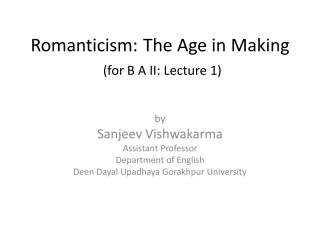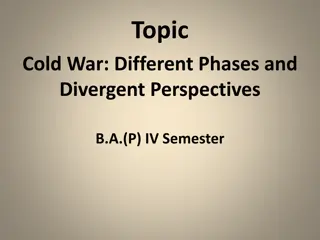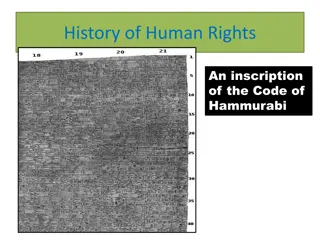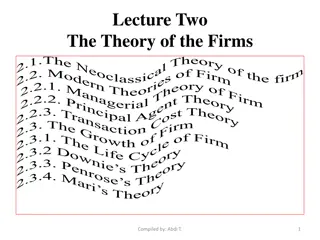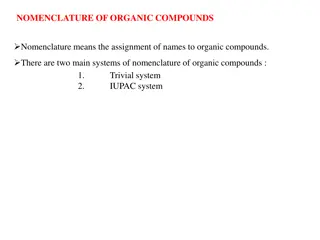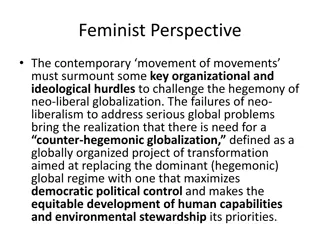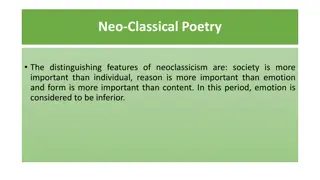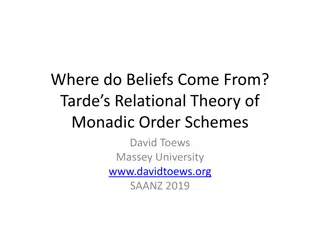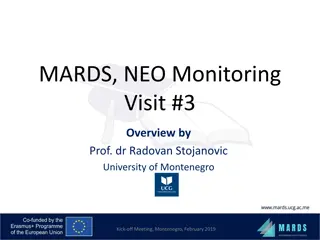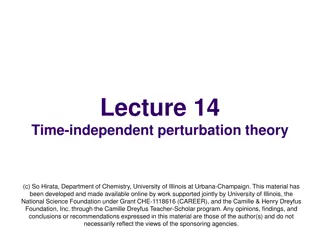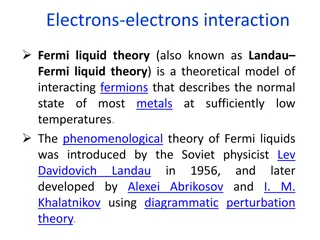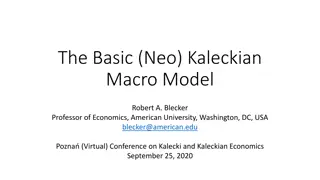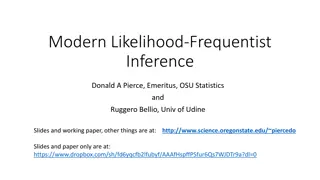Romanticism: The Age in Making
Explore the origins and characteristics of Romanticism in this informative lecture, covering the Enlightenment, American Independence, and the shift away from Enlightenment Neo-classicism.
19 views • 20 slides
Home Painting Services in Chennai
Looking for home painting services in Chennai? Neo by Nippon Paint offers house painting services in Chennai. Our interior and exterior home painters in Chennai provide top quality painting services that are hassle and stress-free.
3 views • 3 slides
Home Painting Services in Coimbatore
The most important aspect of Neo by Nippon Paint is that we offer effective defence against weather factors like rain, fire, wind, and snow. Choosing the right professional wall house painters in Coimbatore enhances the life and value of your house.
1 views • 3 slides
AI in Financial Services: Digital Revolution and Fintech Disruption
The digital transformation in financial services is driven by AI, sparking a social revolution impacting all aspects of life. Industry 4.0 brought FinTech disruption, creating new ecosystems and partnerships for innovative financial solutions. Incumbents and regulators have responded with strategies
2 views • 21 slides
Enhancing Customer Loyalty with UNIO's Real Infrastructure of Client Benefits
UNIO offers a comprehensive infrastructure of client benefits and motivation to increase customer loyalty. Their system includes unique features such as money-back promotions, prizes, and a lower client migration rate. By working alongside international loyalty systems and partnering with NEO Bank U
0 views • 7 slides
Lenovo Business PCs & Monitors Special Promo January 2024
Explore the special promotions on Lenovo Business PCs and Monitors for January 2024. The promo includes a variety of PC models such as ThinkCentre NEO 50T and Tiny PC ThinkEdge SE30, featuring different configurations to suit various needs. Don't miss out on this limited-time offer valid until 23/02
1 views • 4 slides
NPA Through Lens of RBI
Gain insights into non-performing asset management from the perspective of RBI through the experiences and expertise shared by CA Gopal Dhakan. Explore topics such as Bank Branch Audit, Neo Banking, Fee Structure Changes, and Reimbursement Policies, offering valuable information for professionals in
3 views • 43 slides
HUMAN GEOGRAPHY
Human geography examines how human groups adapt to their natural environment. It covers various branches such as social, economic, population, historical, political, and military geography. The discipline also explores fundamental principles and theories like environmental determinism, possibilism,
2 views • 6 slides
Oncological Perspective on Invasive Lobular Carcinoma: Challenges and Response to Chemotherapy
Guidelines and characteristics of invasive lobular carcinoma, focusing on oncological challenges, response to chemotherapy, and prognosis after neo-adjuvant treatment in patients. Highlights the importance of considering histology type for tailored treatment decisions. Discusses the effectiveness of
0 views • 20 slides
Architecture in Colonial India: A Blend of Cultures
British Colonial architecture in India during the 17th to 20th centuries combined Hindu, Islamic, and Western elements, leading to the unique Indo-Saracenic style. This architectural era saw the construction of institutional and civic buildings showcasing a mix of Gothic, Neo-Classical, Indo-Islamic
0 views • 9 slides
Evolution of Mathematical Theories and Proof Systems
Development of mathematical theories such as model theory, proof theory, set theory, recursion theory, and computational complexity is discussed, starting from historical perspectives with Dedekind and Peano to Godel's theorems, recursion theory's golden age in the 1930s, and advancements in proof t
2 views • 29 slides
The Cold War: Phases and Perspectives in B.A. IV Semester
Cold War, characterized by economic, political, and military competition between the US and Soviet Union, stemmed from ideological differences leading to global conflicts and proxy wars in the Global South, ultimately fueling neo-colonialism and neo-imperialism.
1 views • 15 slides
Ancient Origins of Human Rights: Code of Hammurabi to Cyrus the Great
Explore the historical roots of human rights, starting from the Code of Hammurabi in Mesopotamia, through the reforms of Urukagina and the Neo-Sumerian Code of Ur-Nammu, to the groundbreaking principles established by Cyrus the Great in the Achaemenid Persian Empire. Witness the evolution of human r
0 views • 27 slides
Psychological Theories of Criminality: Understanding the Roots
Psychological theories of criminality delve into the association between intelligence, personality, learning, and criminal behavior. Major theories include Psychodynamic Theory by Freud, Behavioral Theory by Bandura, and Cognitive Theory by Kohlberg. These theories explore how unconscious mental pro
1 views • 20 slides
Theory of Firms: Neoclassical vs. Modern Approaches
The theory of firms is explored through the Neoclassical and Modern perspectives. Neoclassical theory focuses on profit maximization, while Modern theory delves into managerial, principal-agent, and transaction cost theories. The discussion covers criticisms of Neoclassical theory and the essential
1 views • 79 slides
Neo.Go Mobile Application Integration Settings
This guide provides detailed instructions for integrating the Neo.Go mobile application with Neo security system panels using Ethernet or Cellular communication. It covers programming steps, data plan considerations, and settings for both Cellular and Ethernet communications. Ensure a proper data pl
0 views • 26 slides
Overview of Organic Compounds Nomenclature
Nomenclature of organic compounds involves assigning names based on two main systems - Trivial system and IUPAC system. Trivial system utilizes names related to discoverers or sources, often with Latin or Greek roots. Saturated hydrocarbons, known as paraffins, contain single bonds and are less reac
0 views • 27 slides
Feminist Perspectives on Globalization Challenges
The contemporary feminist movement aims to challenge the hegemony of neo-liberal globalization by advocating for a counter-hegemonic approach that prioritizes democratic political control, equitable development, and environmental stewardship. Different feminist theoretical approaches address gender
0 views • 20 slides
Neo-Classical Poetry: Features and Characteristics
Neoclassical poetry emphasizes society over the individual, prioritizes reason over emotion, and values form over content. Poets must focus on universal themes, reflect nature objectively, and uphold didacticism by teaching moral and intellectual lessons. The era's poets are considered craftsmen who
1 views • 5 slides
The Origins of Beliefs: A Comparative Analysis of Tarde and Durkheim
Gabriel Tarde and Emile Durkheim engaged in philosophical debates on the origins of beliefs within societal structures. While Durkheim saw beliefs as integral to society's moral ideals, Tarde proposed a neo-monadological theory focusing on actors' beliefs within social practices. The discourse quest
2 views • 19 slides
Theories of Causation in Psychological and Social Sciences
Overview of theories of causation categorized into psychological, social psychological, and sociological perspectives. Psychological theories focus on instinctive, biological, and psychological qualities of abusers, including Attachment Theory, Psychodynamic Theory, Social Learning Theory, and Situa
0 views • 15 slides
Political Theory through a Contextual Approach
Exploring G.H. Sabine's perspective on political theory through a contextual approach, emphasizing the importance of historical context and societal influences. Sabine argues that while political theory evolves with its contemporary politics, it should be analyzed within its specific time and social
0 views • 9 slides
Overview of MARDS-NEO Monitoring Visit #3 by Prof. dr. Radovan Stojanovic at University of Montenegro Kick-off Meeting
This presentation provides an overview of the MARDS-NEO Monitoring Visit #3 conducted by Prof. dr. Radovan Stojanovic at the University of Montenegro Kick-off Meeting in February 2019. It covers topics such as project progress, main problems, mitigation strategies, opinions, activities completed by
0 views • 13 slides
Evolution of Light Theory: From Wave Theory to Quantum Theory
At the turn of the century, the discovery of the photoelectric effect challenged the wave theory of light, leading to the development of the quantum theory by Max Planck and Albert Einstein. This new theory introduced the concept of discrete energy units known as quanta, bridging the gap between wav
2 views • 62 slides
Perspectives on Youth Culture Through Functionalist and Neo-Marxist Views
Functionalist and Neo-Marxist perspectives on youth culture offer contrasting views on its purpose in society. Functionalist theorists emphasize the role of youth culture in providing a transitional phase for young people, aiding in their social integration and development of independence. On the ot
0 views • 11 slides
Dp-branes, NS5-branes, U-duality, and M-Theory Overview
Overview of Dp-branes, NS5-branes, and U-duality derived from nonabelian (2,0) theory with Lie 3-algebra. Introduction to M-theory, including M2-branes and M5-branes in the strong coupling limit. Discussion on BLG theory, Lorentzian Lie 3-algebra, and the ABJM theory for M2-branes.
3 views • 32 slides
Innovative Catering Solutions by Neo Mokoena's Garlic & Ginger Trading
Neo Mokoena, a skilled chef with a Swiss hotel school diploma, offers in-house and events catering services through Neoyamokoena Trading as Garlic & Ginger. With a focus on filling the gap in on-site and event catering needs, Neo aims to provide convenience and quality services to businesses and eve
0 views • 23 slides
Time-Independent Perturbation Theory in Quantum Mechanics
Perturbation theory is a powerful tool in solving complex physical and mathematical problems approximately by adjusting solutions from a related problem with known solutions. This theory allows for more accurate approximate solutions by treating the difference as a small perturbation. An example inv
0 views • 19 slides
Ethical Theories: Divine Command vs. Virtue Theory Explained
Divine Command Theory asserts that morality is derived from God's commands, contrasting with Virtue Theory which focuses on developing moral virtues to achieve human flourishing and excellence. Divine Command Theory relies on religious texts, while Virtue Theory emphasizes the cultivation of virtues
0 views • 24 slides
UN Recommendations for Responding to NEO Impact Threats
The Action Team on NEOs, established by the United Nations, has put forth recommendations for an international response to the threat of near-Earth object impacts. This initiative stems from the work of the COPUOS and its subcommittees, aiming to address potential NEO impact scenarios through collab
0 views • 26 slides
Fermi Liquid Theory in Interacting Fermion Systems
Fermi liquid theory, also known as Landau-Fermi liquid theory, is a theoretical model that describes the normal state of metals at low temperatures. Introduced by Landau and further developed by Abrikosov and Khalatnikov, this theory explains the similarities and differences between interacting ferm
0 views • 23 slides
Retiring from NEO - Overview of Retirement Process and Benefits
Explore the NEO retirement process, including criteria, steps, accrued leave, and benefits such as OTRS retirement options. Understand eligibility, necessary documents, and timelines for a smooth retirement transition.
0 views • 27 slides
Computational Learning Theory: An Overview
Computational Learning Theory explores inductive learning algorithms that generate hypotheses from training sets, emphasizing the uncertainty of generalization. The theory introduces probabilities to measure correctness and certainty, addressing challenges in learning hidden concepts. Through exampl
0 views • 43 slides
Automata Theory and Theory of Computation Overview
This course overview covers concepts in automata theory and theory of computation, including formal language classes, grammars, recognizers, theorems in automata theory, decidability, and intractability of computational problems. The Chomsky hierarchy, interplay between computing components, modern-
0 views • 42 slides
Theories of Interest in Microeconomics II
Explore various theories of interest in economics, including the Classical Theory, Liquidity Preference Theory by Keynes, Productivity Theory, Abstinence Theory, Time-Preference Theory, Fisher's Time Preference Theory, and the Loanable Fund Theory. These theories offer different perspectives on the
1 views • 6 slides
The Evolution of Atomic Theory
Delve into the historical journey of atomic theory starting from Democritus and Aristotle's views to modern advancements proving some aspects of Dalton's theory incorrect. Learn about key laws and theories such as the Particle Theory of Matter, Dalton's Atomic Theory, and JJ Thomson's discoveries, s
0 views • 30 slides
International Response to NEO Impact Threat: UN Recommendations
Recent United Nations General Assembly agreements pave the way for an international response to the threat of near-Earth object impacts. Originating from UNISPACE III in 1999, the establishment of the Action Team on NEOs (AT-14) has led to significant recommendations adopted by the United Nations. C
0 views • 26 slides
Neo-Kaleckian Macro Model Overview
This presentation explores the Neo-Kaleckian macroeconomic models, examining their development, key elements, and unique features within the broader context of economic theories. It delves into the first-generation models by Harris and Asimakopulos, focusing on markup pricing, labor costs, profit sh
0 views • 22 slides
Modern Likelihood-Frequentist Inference: A Brief Overview
The presentation by Donald A. Pierce and Ruggero Bellio delves into Modern Likelihood-Frequentist Inference, discussing its significance as an advancement in statistical theory and methods. They highlight the shift towards likelihood and sufficiency, complementing Neyman-Pearson theory. The talk cov
0 views • 22 slides
Macromechanical Analysis of Lamina and Tsai-Hill Failure Theory Overview
The Tsai-Hill failure theory is based on the strengths of a unidirectional lamina, incorporating longitudinal and transverse tensile and compressive strengths, as well as in-plane shear strength. This theory, derived from the distortion energy theory, provides criteria for determining lamina failure
0 views • 15 slides
